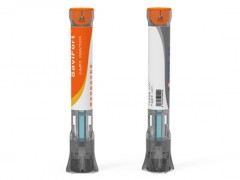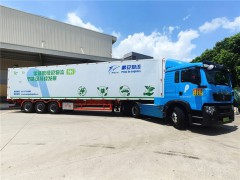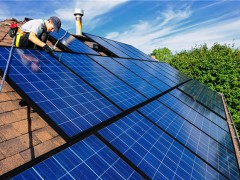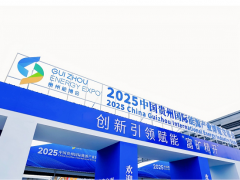? 沙特阿拉伯和阿聯酋正在引領中東地區的氫氣供應
? 隨著沙特阿拉伯和阿聯酋相繼宣布新的氫氣燃料項目,很明顯,兩國希望擊敗歐洲,成為最大的氫氣燃料生產國
? 阿曼也希望成為全球一個主要的氫氣生產國和出口國
據美國油價網報道,隨著2021年中東地區國家接連宣布宏偉的氫能源計劃,世界上一些主要能源生產國似乎正在為分得一塊氫能源的蛋糕而你爭我奪。沙特阿拉伯和阿聯酋都宣布了未來10年對藍色氫氣和綠色氫氣生產的重大投資,希望擊敗歐洲成為世界上最大的氫氣燃料生產國。 日前,法國的Engie和總部位于阿布扎比的可再生能源企業馬斯達爾能源公司宣布,計劃投資50億美元發展阿聯酋的綠色氫氣工業。 關于項目開發的細節還沒有透露,但兩家公司希望在2030年前建成2吉瓦電解槽產能的項目。這個項目旨在為海灣合作委員會(GCC)開發一個吉瓦規模的綠色氫氣中心,這將有助于加速GCC成員國的經濟脫碳。
兩家公司表示,新的氫氣項目“最初將以本地供應為目標,目標是擴大產能,為GCC建立一個吉瓦規模的綠色氫氣中心,這個綠色氫氣中心具有出口到世界其他市場的潛力”。
2021年5月,迪拜啟動了本地區“首個工業規模”的綠色氫氣工廠。這個項目由德國西門子公司運營,將使用巨大的穆罕默德·本·拉希德·阿勒馬克圖姆太陽能公園的電力,預計到2030年前,該太陽能公園的產能將達到5000兆瓦。
在2021年11月份舉行的COP26氣候峰會上,阿聯酋披露了其通過“氫領導路線圖”在2030年前在全球低碳氫氣市場中占據25%份額的目標。 阿聯酋希望在未來十年內成為全球主要的氫氣出口國,特別是把重點放在歐洲和東亞市場上,目前已有幾個氫氣項目正在實施中。 阿布扎比國家石油公司(ADNOC)目前的氫氣年產量超過30萬噸,其目標為年產50萬噸。
但阿聯酋并不是唯一的一個希望領先國際競爭對手發展綠色氫氣工業的中東國家。沙特阿拉伯已經在氫氣項目上投入巨資,盡管沙特阿拉伯國家石油公司(沙特阿美)承認,藍色氫氣仍占主導地位,旨在使綠色氫氣在經濟上更可行,以期發展該行業。 這是沙特阿拉伯國家運輸和物流戰略的一部分,旨在到2030年前將該行業的非石油收入提高到120億美元。
目前,沙特阿拉伯正在與鄰國合作,沙特領先的發電和海水淡化廠開發商、投資者和運營商ACWA Power和阿曼石油公司和美國空氣產品公司簽署了一項價值70億美元的協議,在阿曼的Salalah自由區生產綠色氫氣。 作為沙特Neom開發項目的一部分,ACWA Power和美國空氣產品公司已經在沙特阿拉伯紅海海岸開發一個價值50億美元的氫基氨廠。這個氫基氨廠預計每天生產650噸氫氣。
通過區域協議,阿曼也希望成為全球一個主要的氫氣生產國和出口國。 在2021年11月,當地官員宣布,阿曼希望到2040年前建立一個以氫氣為中心的經濟,綠色氫氣和藍色氫氣將達到30吉瓦。 阿曼政府暗示不日將發布國家氫氣戰略。 此外,阿曼已經計劃在2038年前建造世界上最大的氫氣設施之一,工程施工將在2028年開始。 這些耗資300億美元的工廠將由25吉瓦的風能和太陽能供電,目標是最終年產180萬噸氫氣。
阿曼石油開發公司能源更新部門負責人Abullah al Abri表示:“清潔氫氣——包括綠色氫氣和藍色氫氣——到2025年約為1吉瓦,到2030年前約為10吉瓦,到2040年前約為30吉瓦——這就是我們對阿曼氫氣產量增長的看法。”
由于綠色競賽加劇,中東能源生產國希望能在氫氣生產方面與歐洲競爭。阿聯酋和沙特阿拉伯的巨額投資預計將與歐洲各地類似的發展形成競爭。就在2021年12月份,西班牙電力公司伊維爾德羅拉和瑞典鋼鐵公司H2 Green Steel宣布合作開發一個26億美元的綠色氫氣設施。 這個綠色氫氣設施位于歐洲西南部伊比利亞半島,預計將在2025/2026年開始運營。
然而,并不是所有的氫氣都是平等的,雖然歐洲在灰色氫氣/藍色氫氣(來自化石燃料生產)的生產方面處于領先地位,但在發展綠色氫氣工業方面仍有很長的路要走。 但是,與藍色氫氣和灰色氫氣的替代品相比,生產綠色氫氣的成本較高,這仍然是一個限制因素。在能源巨頭應對這一挑戰的同時,時間將告訴我們,哪個國家能夠通過大量的前期投資,最快地發展其綠色氫氣燃料行業,成為最大的燃料生產商和出口商。
李峻 編譯自 美國油價網
原文如下:
Middle East Oil Giants Are Battling For Hydrogen Supremacy
· Saudi Arabia and the UAE are leading the charge for hydrogen in the Middle East.
· With both countries making announcement after announcement of new hydrogen projects, it’s clear that they are looking to beat Europe to become the largest producers of the fuel.
· Oman is also hoping to become a major hydrogen producer and exporter.
With announcement after announcement of grand hydrogen plans across the Middle East over the last year, it seems some of the world’s major energy-producing states are battling it out for a piece of the hydrogen pie. Saudi Arabia and the UAE have both revealed major investments in blue and green hydrogen production for the next decade, hoping to beat Europe to become the biggest producers of the fuel. Last week, France’s Engie and Abu Dhabi-based renewable energy business Masdar announced plans to invest $5 billion in the development of the UAE’s green hydrogen industry. Few details have been provided around the development, but the two companies hope to establish projects with an electrolyzer capacity of 2 gigawatts by 2030. The project is aimed at developing a giga-scale green hydrogen hub for the Gulf Cooperation Council (GCC), which could help accelerate the decarbonization of the economy.
The two firms stated that the new hydrogen projects will “initially target local supply, with the aim of expanding capacity to create a giga-scale green hydrogen hub for the GCC, with the potential to export to other markets.”
In May this year, Dubai launched the region’s ‘first industrial scale’ green hydrogen plant. Operated by Siemens, the project will use energy from the enormous Mohammed bin Rashid Al Maktoum Solar Park, which is expected to achieve a production capacity of 5,000 megawatts by 2030.
In the November COP26 summit, the UAE revealed aims for a 25 percent share of the global low-carbon hydrogen market by 2030 through its ‘hydrogen leadership roadmap’. The country hopes to become a leading hydrogen exporter over the next decade, particularly focusing on the Europe and East Asia markets, with several projects already underway. The Abu Dhabi National Oil Co. (ADNOC) currently produces over 300,000 mt/year of hydrogen, with targets of 500,000 mt/year.
But it’s not the only Middle Eastern country aiming to develop its green hydrogen industry ahead of international competitors. Saudi Arabia is already investing heavily in hydrogen projects, although state-owned energy firm ARAMCO admits that blue hydrogen still dominates, aiming to make green hydrogen more financially viable to grow the sector. This comes as part of the national transport and logistics strategy to boost annual non-oil revenues from the sector to $12 billion by 2030.
Saudi Arabia is working with neighboring countries as ACWA Power and Omanoil and Air Products sign a $7 billion agreement this week to produce green hydrogen in Oman’s Salalah free zone. ACWA Power and US-based Air Products are already developing a $5 billion hydrogen-based ammonia plant as part of the Neom development on the Red Sea coast of Saudi Arabia. The facility is expected to produce 650 tonnes of hydrogen every day.
Through regional agreements, Oman is also hoping to become a major hydrogen producer and exporter. In November, local officials announced that it hoped to establish a hydrogen-centric economy by 2040, with 30GW of green and blue hydrogen. The government has hinted at a national hydrogen strategy to be released before the end of the year. Further, Oman already has plans to construct one of the world’s largest hydrogen facilities by 2038, with works commencing in 2028. The $30 billion plants will be powered by 25 gigawatts of wind and solar energy, aiming for an eventual hydrogen output of 1.8 million tonnes per year.
Abullah al Abri, head of Energy Renewal at Petroleum Development Oman stated, “The potential for clean hydrogen, including the green and blue versions, is around 1GW by 2025, 10GW by 2030, and around 30GW by 2040 — this is how we see the growth of hydrogen in Oman.”
The Middle East energy-producing states hope to rival Europe in hydrogen production as the race to green hots up. Huge investments from the UAE and Saudi Arabia are expected to compete against similar developments across Europe. Just this month, Spanish power company Iberdrola and Sweden’s H2 Green Steel announced their partnership for the development of a $2.6 billion green hydrogen facility. To be situated on the Iberian Peninsula, the plant is expected to commence operations in 2025/26.
However, not all hydrogen is equal, and while Europe is leading in the production of grey/blue hydrogen, derived from fossil fuel production, it still has a long way to go in developing its green hydrogen industry. But the high cost of producing green hydrogen compared to blue and grey alternatives continues to be a limiting factor. While energy majors contend with this challenge, time will tell which country can develop its green hydrogen sector the fastest through heavy up-front investments to become the largest producer and exporter of the fuel.
免責聲明:本網轉載自其它媒體的文章,目的在于弘揚石化精神,傳遞更多石化信息,并不代表本網贊同其觀點和對其真實性負責,在此我們謹向原作者和原媒體致以敬意。如果您認為本站文章侵犯了您的版權,請與我們聯系,我們將第一時間刪除。







